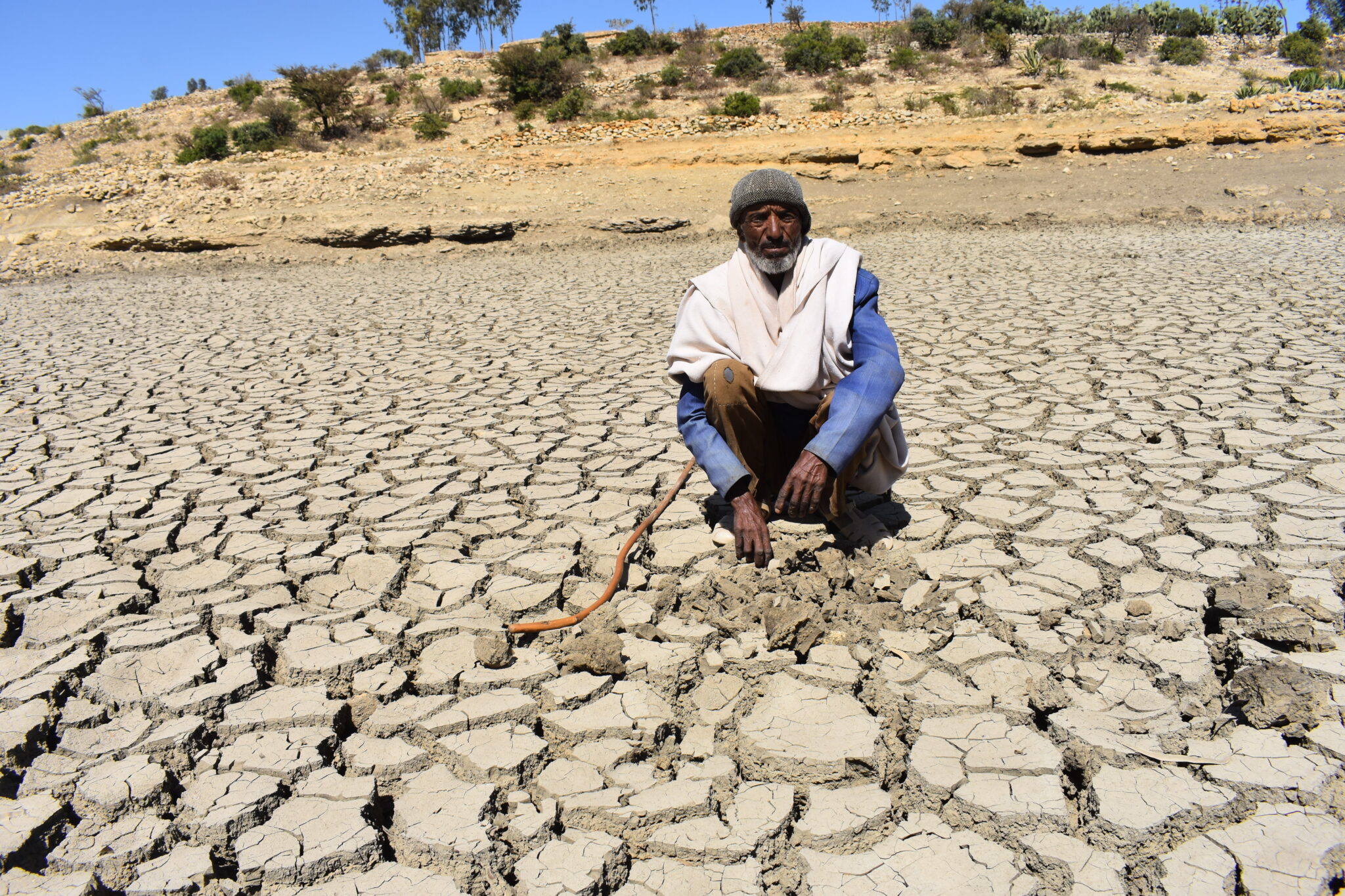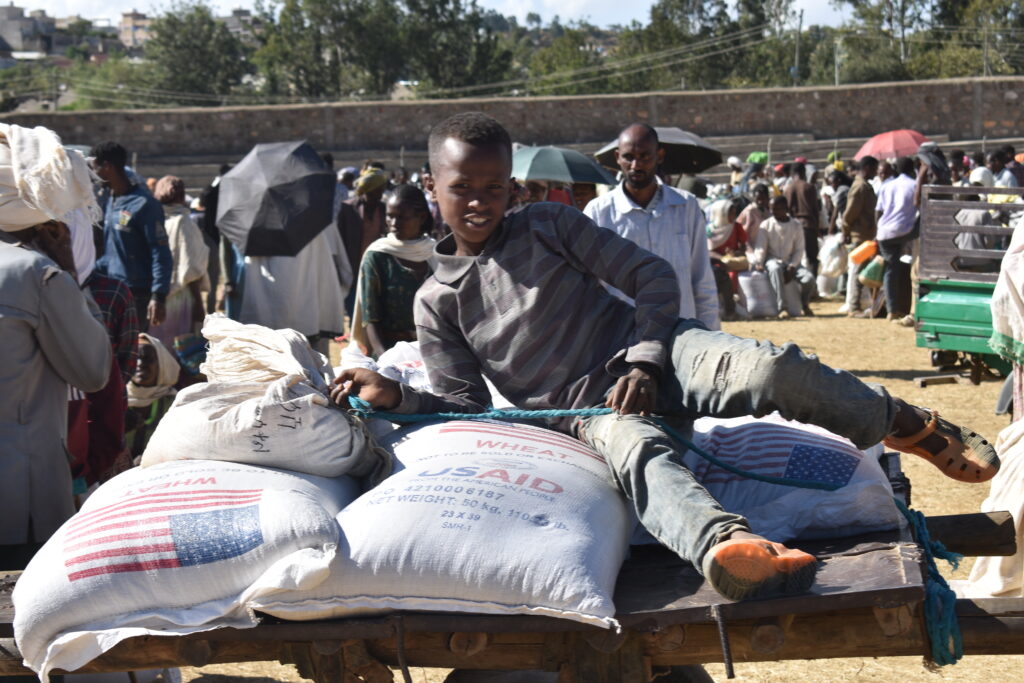A Model for Change: Aregawi Girmay’s Story
Aregawi Girmay’s Path from Traditional to Sustainable Agriculture Aregawi Girmay and his wife, Tsehaynesh Abadi,…
Aregawi Girmay’s Path from Traditional to Sustainable Agriculture Aregawi Girmay and his wife, Tsehaynesh Abadi,…
Improving Public Health Outcomes: The Wurich Water Point “Water-borne diseases may affect us if we…
Transforming Communities: The Story of Daba Gray Water Point Situated in Debre Genet Tabia’s Woreda…
Empowering Rural Women: Alem Teka’s Story Alem Teka, a forty-year-old woman from Embasineyti Woreda, faced…
Thirst Under the Tigray Sun: A Story of Resilience and Relief Imagine this: a relentless…
Vermicomposting in Laelay Legomti Tesfamariam Welu, a pillar of his six-person household in Laelay Legomti…
Building Resilience Through Knowledge In a commendable effort to bolster food security and environmental sustainability…
Successfully Completes Spate Irrigation Project The Relief Society of Tigray (REST) is proud to announce…
Partnership with the Tigray Biotechnology Center (TBC)! Exciting News from REST Tigray! We are thrilled…
Mehira’s Story: Life without Access to Clean Water Mehira Gebru, 28 years old, shares…
Empowering Dreams: Providing Access to Clean Water Birhan’s Testimonial “After 5 months of failure, I…
Restoring Clean Water Access in Tigray: A Story of Resilience WASH Emergency – Scheme Maintenance…

REST has stepped up to provide essential aid and support during Ethiopia’s most challenging times, establishing refugee camps and delivering vital assistance to those affected by famine and conflict in the Tigray region.
REST remained unwavering in its commitment to providing relief during droughts and crop failures.
REST’s efforts aligned with national and regional disaster preparedness strategies.
With the end of the civil war, REST shifted focus to lead in the rehabilitation and development of the Tigray Region.
REST maintained its commitment to providing relief during droughts and crop failures.
As refugees returned home, REST transitioned towards rehabilitation and long-term development.
REST emphasized fostering rural economic growth and sustainable livelihoods.
Founded in 1978, the Relief Society of Tigray (REST) boasts a rich history deeply woven into the fabric of the Tigray Region. Established during a period of immense challenge, REST emerged as a beacon of hope, dedicated to alleviating the suffering of Tigray’s people.
The year 1978 marks not just a starting point, but a testament to the unwavering spirit of the Tigrayan people. It signifies the birth of an organization built on resilience, solidarity, and a deep commitment to community development. As REST embarks on its next chapter, this legacy continues to serve as a guiding force, inspiring us to build a brighter future for generations to come.
Reaching a milestone of 1,000 completed projects is a defining moment for the Relief Society of Tigray (REST). This number isn’t just a statistic; it represents a decade upon decade of unwavering commitment to empowering communities and fostering sustainable development in Tigray, Ethiopia.
As we move forward, the spirit of innovation and unwavering commitment enshrined in these 1,000 projects will continue to guide our path. We invite you to join us on this ongoing journey of transformation, where every project completed brings us closer to a brighter future for Tigray.
A Commitment to Service: The 3Million Mark
The number 3,000,000 holds profound significance for REST. It represents the remarkable milestone of over two million individuals whose lives have been demonstrably impacted by our work. This encompasses a diverse range of beneficiaries, from families receiving vital food security interventions to children gaining access to education and healthcare. Each number reflects a story of resilience, hope, and a community empowered to reach its full potential.
REST has played a significant role in improving food and nutrition security in the region.
REST’s efforts have fostered sustainable household livelihoods.
REST’s work has increased regional productivity and economic growth.
REST continues its multi-sectoral emergency humanitarian response and recovery efforts.

Millions of people in Tigray face hunger. Estimates from mid-2021 suggested hundreds of thousands were in “catastrophic” food insecurity, with millions more facing lesser but still serious food shortages. This situation is likely to have worsened since then.
Delivering humanitarian aid has been a major challenge. The Ethiopian government has restricted access at times, and insecurity from armed groups also disrupts aid deliveries. This means many people in need are not getting the help they require.
The healthcare system in Tigray is shattered. Hospitals have been damaged or destroyed, and medical supplies are scarce. This makes it difficult to treat people who are sick or injured, including those with unrelated illnesses like Covid-19.
Millions of people have been displaced from their homes due to the fighting. Many are living in crowded camps with limited access to basic necessities.

At REST, our governance structure underscores our commitment to excellence, transparency, and impact in all our endeavors. Our governance structure ensures transparency, inclusivity, and effectiveness.
At REST, we focus on reaching all conflict-affected communities within our capacity and available resources. We prioritize providing support to internally displaced people (IDPs) and survivors of gender-based violence, recognizing their heightened vulnerabilities.
In addition, we tailor our approaches and activities to assist specific vulnerable groups, including disabled individuals, female-headed households, the elderly, and youth. Our selection criteria ensure that we address the unique needs of each group, aiming to provide targeted assistance and support where it is most needed.

REST’s mission is to promote self-reliant and sustainable development, focusing on supporting smallholder agricultural households and communities.
REST prioritizes serving and advocating for people, especially marginalized groups. We believe in equality, inclusion, participation, accountability, transparency, promoting resilience, and self-reliance.
REST works in humanitarian response, recovery/rehabilitation, and community-based development.
REST provides food distribution, emergency WASH (Water, Sanitation, and Hygiene) services, emergency nutrition support, protection services, and non-food items (NFI) to those affected by conflict or crises.